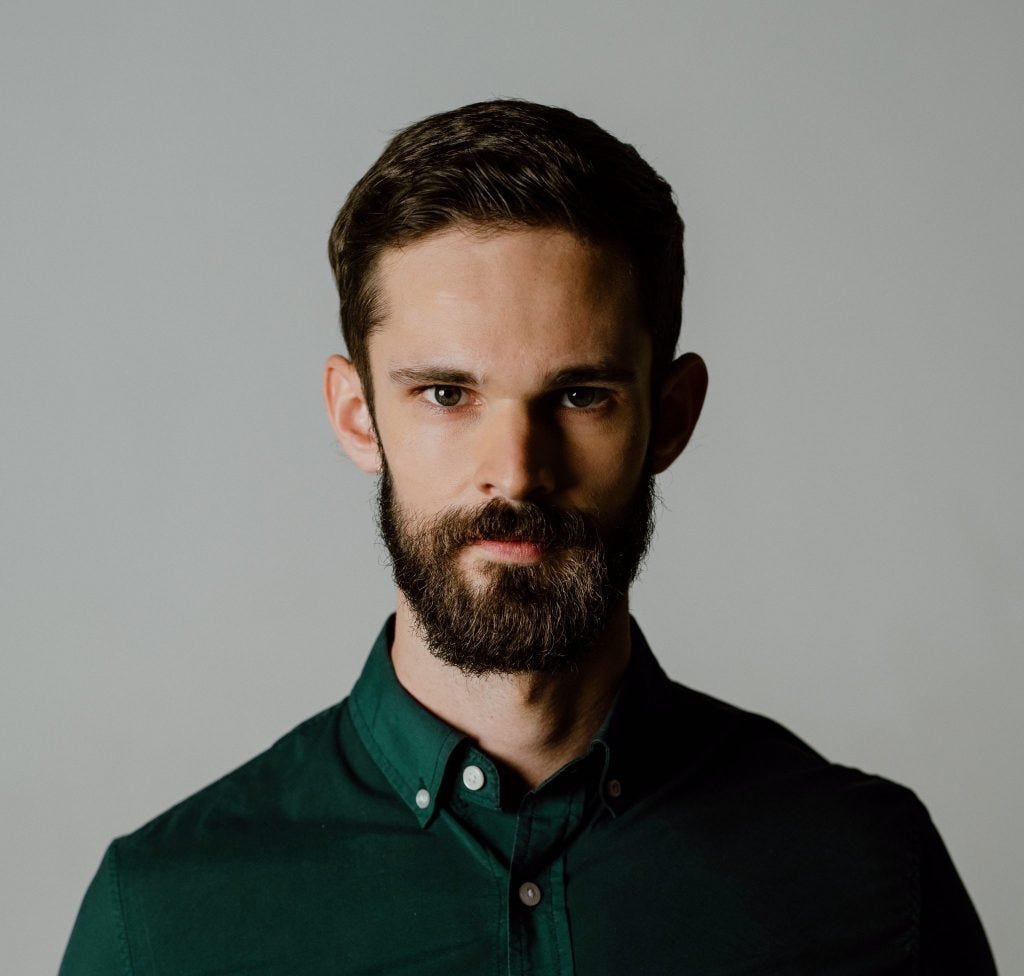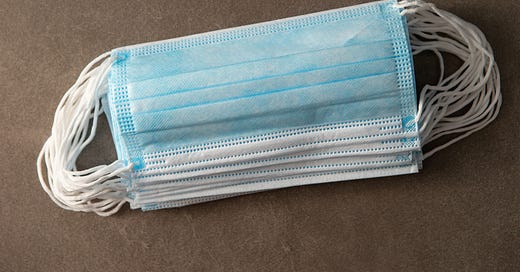“Come and take it”: these are the words of a king to an emperor. “When Xerxes wrote again to [Leonidas] saying, ‘hand over your weapons,’ he wrote back: ‘come and take them’” (Plutarch, Spartan Sayings). You can tell whether you’re using the words right by what happens next. If your adversary responds with furious indignation, as Xerxes did, you’re up against a would-be despot of the first water.
If, on the other hand, the reaction to your “come and take it” is a hearty “meh,” perhaps you’ve misjudged who the tyrant in the room is. Last week, Governor Greg Abbott lifted the mask mandate in Texas and raised the capacity of all businesses to 100 percent by executive order. In protest, objectors circulated an image of the “come and take it” flag that has symbolized Texan defiance ever since the Battle of Gonzales in 1835. But in place of the cannon that the Texan revolutionaries were defending against an abusive Mexican army, this flag was emblazoned with an icon of the beloved mask.
Needless to say, no one is coming to take your mask. Quite to the contrary: since moving from the mask-obsessed state of California to the relatively lax state of Tennessee, I’ve noticed something remarkable about my own inner life. The freer I personally am, the happier I am to see people making choices that are different from mine. Perhaps in a saner time this would be mere common sense; in our own time, it merits attention and reflection.
Here in Tennessee, businesses are supposed to require masks. But there are some (I won’t name them; I’m no snitch) where patrons are free to do as they like. In most of those places, I’d say about twenty-five percent of people on average do mask up. I find myself not just tolerant of this, but positively deferent. My attitude toward maskers has gone from rage to love overnight.
In California, the social climate of basically any public space is now one of tension and suspicion. Anywhere you go—outdoors, indoors, doesn’t matter—you might be confronted by a screeching harridan who will literally cross the street (thus defeating the whole point of the endeavor) to berate you about your stupid ugly maskless face. If you think I’m exaggerating, try standing in line for takeout in West Hollywood or Culver City. It’s a miserable experience. It makes absolutely everybody petty and defensive.
But here in Tennessee, I’m more than happy to accommodate maskers—to keep my distance from them, to greet them with whatever form of nod or fist bump they prefer. Because in reality, there is a virus going around, and our slimy bureaucrats have made it nigh on impossible to get good information about it. Myself, I’m pretty sure I’ll be just fine. But I respect someone who evaluates the risks differently and acts accordingly.
Maybe if I were a saint I would always regard my fellow Americans—no matter how misled I think they have been, no matter how spitefully they might antagonize me—with charity and grace. But I am not a saint. Neither are you. If you harangue us, if you ostracize us, if you do not trust us to make even the most basic decisions about how to live together, we will snap. Californians and New Yorkers are demonstrating this: under the police regimes of the progressive cities, everyone, policer and policed alike, has gone a little bit insane.
I write a fair amount in this Substack and elsewhere about practical wisdom (phronēsis), the Aristotelian virtue of putting your ethical principles into practice. “Virtue is what makes our goals the right ones, but practical wisdom shows us the right way to achieve them” (Nicomachean Ethics 1144a). The particulars of right action will be different in every case. Justice and self-restraint today might mean calmly talking sense into your disobedient child; tomorrow those same virtues might make you scream bloody murder at the same child so he gets off of the road before a car hits him.
You can’t write these kinds of rules in advance, which is why you need practical wisdom: it teaches you to respond in real time, on the basis of your morals, to the facts on the ground. I will have more to say about this essential and lost skill in weeks to come. For now I want to note something crucial: by its nature, practical wisdom cannot be outsourced to experts. “The virtues do not work the way the science of medicine does when it produces healthy outcomes in the body. It works the way health itself does when it produces healthy outcomes in the body: in the same way, wisdom produces flourishing” (1144a, emphasis added).
Flourishing—the full flower of human being which comes about when we cultivate our own moral excellence—is inextricable from making virtuous choices freely, of our own accord. Thus practical wisdom is not like medicine, because “when we want to be healthy, we do not learn medicine” (1143b). The whole point of practical wisdom, and thus of virtuous action, and thus of being a person at all, is to internalize wisdom and make virtue your own—not to borrow them from someone else by having experts make your choices.
This helps explain why mask mandates are such an affront. It helps answer the masker’s perpetual question: “what’s the big deal?” It’s just a mask, after all. It’s not, though. It’s moral autonomy, the basis of personal excellence, and of free political life. Mask mandates enrage us because they deprive us of that autonomy, because they treat us as unfit to exercise it in the context of our own communities and daily lives. The minute they are lifted, we regard one another with greater magnanimity, because we have been treated now as the kinds of beings who are capable of exercising magnanimity at all.
We can talk about how to deal with coronavirus. We can manage our disagreements about it, and figure out the right way of negotiating them, if—if—we are each afforded the basic respect of being allowed to practice and deploy practical wisdom. The premise of this country is that each of us is endowed with the right to engage in this indispensable process of moral deliberation. If my fellow citizen will respect that right, then no matter our other differences, I can work with him. But if he wants to strip me of that right, well then—come and take it.






This article resonates in my soul!
"“what’s the big deal?” It’s just a mask, after all. It’s not, though. It’s moral autonomy, the basis of personal excellence, and of free political life. "
Nope. It's just a mask. Unfortunately some have chosen to make it their Thermopylae in the cold civil war. I understand how people in our hair-trigger times could easily confuse the two, but even before the science (I know, I know) began to shore up mask-wearing as a simple and available method to prevent respiratory droplet emissions and the spread of this respiratory pathogen, it made sense to mask up in public.
Speaking of the Spartans, BTW, let's have a TMWYRT on the real deal--Biden's drive to re-criminalize modern sporting rifles. Μολὼν λαβέ
Timothy Wheeler, MD